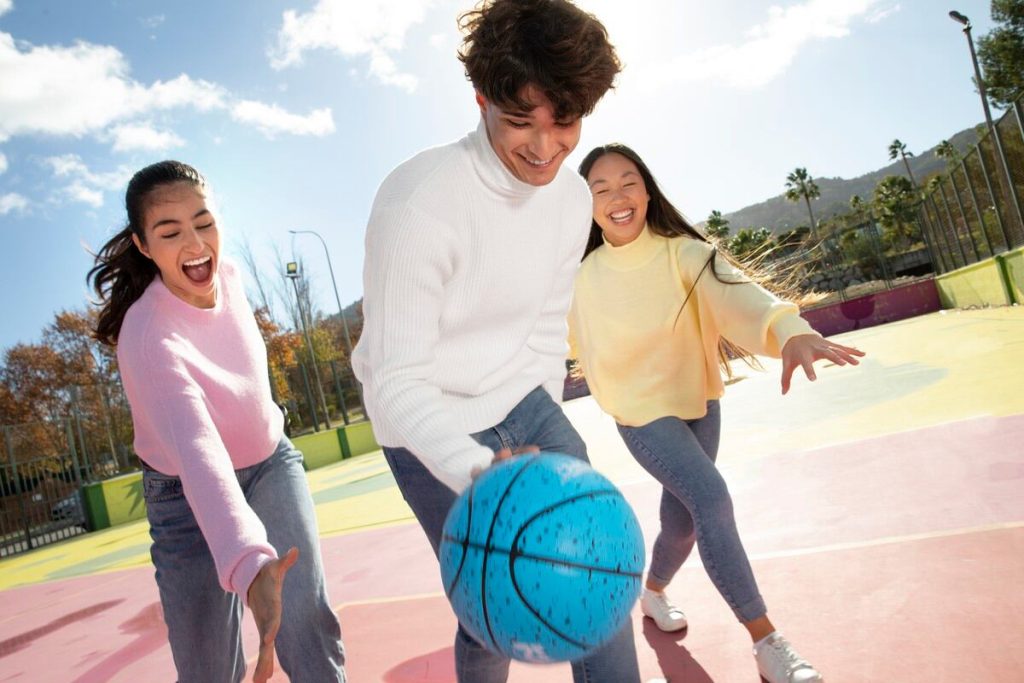The Importance of Exercise for Adolescent Mental Health

Adolescence is a period of significant change in anyone’s life: hormonal, physical, and, of course, psychological modifications abound. According to the World Health Organization (WHO), between 10% and 20% of European adolescents suffer from some form of mental health or behavioral issue. Around two million young people in Europe are affected by mental disorders to varying degrees of severity, according to the Youth Institute. Spain, in particular, has the highest prevalence of these pathologies in children and adolescents across Europe, as reported by UNICEF. How can these statistics be improved? Experts suggest that one solution could be engaging in sports. However, physical activity is becoming less common in Spain.
Decreasing Physical Activity in Adolescents
According to the “Physical Activity and Health in Childhood and Adolescence” guide published by the Ministry of Health in 2009 (the only one to date), children today expend approximately 600 kilocalories less per day than those of 50 years ago. The reasons for this decline are multifactorial, including more sedentary activities such as watching television, browsing the internet, or becoming engrossed in video games, which have replaced outdoor play. Other factors include reduced physical activity in extracurricular activities and increased reliance on motorized transportation.
The Psychological Benefits of Exercise during Adolescence
Exercise offers numerous physical benefits, but it is also crucial for psychological well-being during adolescence. Psychologist Lorena González explains, “We know that exercise is important for the body, which is why we try to make time for it because it’s widely understood to be good for health. However, the general population may not realize that it is equally, if not more, significant for the mind.” González highlights numerous studies, including one by the University of Murcia in 2022 and another by researchers at Massachusetts General Hospital in 2023, showing that exercise has a positive impact on stress, anxiety, and depression management. Additionally, exercise boosts self-esteem, a vital attribute to strengthen during the fragile adolescent stage. González emphasizes that sports help foster healthy social relationships, especially team sports.
The Youth in Iceland Model
González mentions a long-standing government program in Iceland aimed at predicting whether young people who engage in sports are less likely to develop addictions. The results suggest that teenagers who engage in physical activity with friends are less likely to develop addiction and use drugs because exercise itself provides them with motivation and engagement that they don’t need to seek elsewhere. The expert refers to the Youth in Iceland model, whose initial results were published in 2023. This model seeks to reduce conducive conditions for drug use among adolescents and enhance protective factors against them.
The Role of Parents and Role Models
Renowned personal trainer Mar Planas, who has 335,000 followers on Instagram, believes that exercise should always be part of our lives, but it becomes even more important during adolescence. “It is proven that individuals who engage in physical activity improve their self-confidence and self-esteem, besides establishing healthy habits that extend to other areas of their lives. People who exercise are more likely to eat better, drink less alcohol, or go to bed earlier,” she explains. Planas emphasizes the importance of children seeing their parents exercise because they mimic everything their parents do.
Differentiating between Exercise and Physical Activity
Psychiatrist Abigail Huertas Patón from Gregorio Marañón Hospital in Madrid explains the distinction between exercise and physical activity: “The second refers to leading an active life, moving, walking, climbing stairs, jumping, walking the dog, choosing activities that require movement, in short, any activity that activates the muscles, moves the body, and generates energy.” She details how exercise fosters fun, learning, respect for rules, socialization, frustration tolerance, and physical growth. Additionally, sustained physical activity produces structural changes in the brain, releasing various neurotransmitters that mediate attentional and cognitive processes.
Encouraging Lifelong Habits
To help children love sports, it is essential to enroll them in activities from a young age and let them try different ones until they find what they feel comfortable with and enjoy the most. Julio Domínguez, a sportsman and creator of BiciHack, an online bicycle search engine, explains, “It is necessary for physical activity to be maintained over time, to be enjoyable, and for the child to excel at it. If any of these conditions are not met, there are few chances they will remain involved.” Domínguez stresses the importance of not forcing children but encouraging and facilitating their participation in activities with appropriate schedules.


